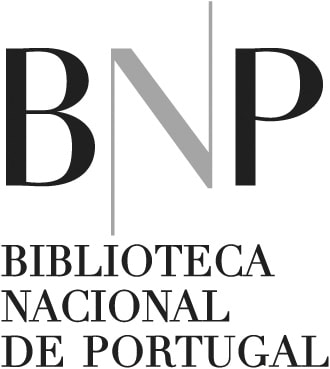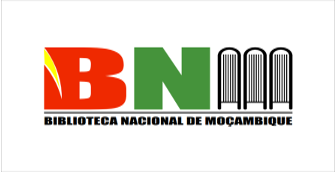About the Colonial Periodical Press
The colonial periodical press [1]
Based on a debate in June 2016, around the “colonial” idea, the group demarcated and deepened the concept of “Colonial Periodical Press”. The discussion was necessary given the polysemy of the adjective and the noun “colonial”, and given the link to the diversity of points of view it called for (geographic, ideological, experiential, and historical). It resulted in different understandings of what “colonial press” was, in other words, the periodical press (or with the intention of periodicity) of the colonial context. At this meeting, the incorporation of imperial, trans-imperial and postcolonial dynamics into that concept was debated, as well as the focus of the group on the Portuguese empire and the countries and spaces that freed themselves from it. It was also decided to focus on the periodical press as an alternative to covering the various media or other types of printed matter.
The focus on the press is justified, first and foremost, by the longevity and priority of this means of social communication, establishing itself as a creator and model of journalism for those who followed it. Its popularization contributed decisively to establish the dynamic relationship between the culture of printed writing and reading, and to revolutionizing the written and oral languages, the categories of writing, and the ways of reading and thinking. No less relevant, it revolutionized the very concept of authorship when turning the periodical itself into a collective author. On the other hand, when the development and lower cost of typographic technology expanded its accessibility, it allowed the press to simultaneously constitute an instrument of power and counter-power, a vehicle for the democratization of authorship, for the diversification of published opinion and the meanings of activism. The press thus played an essential role in the democratization of print culture, constituting itself as a witness and actor in contemporary history. In most titles, and in the particularity of each project, the press constitutes an archive of this history.
The geographically uneven stories of the expansion, shaping and conditioning of the press (or even the non-existence), along and throughout the colonial world, constitute barometers of the degree of "democraticity", allowed or forced, accommodated by a system of power that was by nature undemocratic. Such histories are intimately linked to the birth and evolution of modern liberal and democratic political ideals and practices, and to the way they forced, through criticism and resistance, the ideological foundations and governmental reconfigurations of colonial empires. On a variety of levels (local, trans/imperial, regional), this process saw the creation and diversification of public spheres and audiences, woven into complex networks of communicability and incommunicability, including linguistic ones.
These stories also reveal to us the importance of the press in the raising of critical awareness, and in the political and cultural affirmation, of the colonized peoples, and in the contribution of their intellectuals to the theoretical debates that accompanied the movement of ideas in modernity. The recovery and the study of the titles that constituted this periodical press shows itself as a possibility of recovering forgotten or subalternized voices and of a complex understanding of the colonial and post-colonial world. The issues listed to highlight the importance of the press in the construction of modernity as contemporaneity gain new weight in colonial spaces, where the book market was rarely able to flourish, and where later means of social communication would face increased difficulties in leaving the control of the colonial State.
Looking at the press from a colonial perspective allows us to interrogate the concept of colonial press and its borders. Recovering coeval classifications supported by the noun “colonial”, the colonial press designates the press dedicated to colonialism as a project, which often incorporated the agenda of its national and Western designs, through the discussion of “colonial matters”, including knowledge, policies and mission. Typically it refers to the press designed by “experts” in colonial “realities” or “sciences.” It was also typically written in the language of the colonizer, mostly published in the colonizing countries and, mostly but not exclusively, brought contributions by the natives who had interests or careers in the colonies. From a different perspective, it refers to the press published in the colonies, with respect to their condition of colonial subjection, having been used regardless of the initiative, typology, purposes or languages of communication. These different understandings draw attention to the persistent imaginary of the colonizing countries, in between autonomy and historical dependence, in their role of creators of the colonial space, through which they integrated the colonial world from the position of imperial metropoles. From the perspective of liberated countries/spaces, the colonial press summons the time, the press published in the period in which national/local histories were marked by the dominance of one or more European countries.
It is important to incorporate these distinctions, but adopting one to the detriment of the others neglects their complementary meanings, relationships and roles in the processes of reconstruction, discussion and negotiation and discursive dismantling of the colonial world since the end of the 18th century. These processes have dynamically contributed to shaping and making hegemonic narratives of modernity and backwardness in the different spaces involved. From this perspective, these classifications become insufficient, as they ignore other presses that are equally important for the current understanding of these processes. We refer, in particular, to the press published in European metropolitan centres by the colonized, of which the periodicals promoted by students and migrant communities are the best-known cases. Other cases are those of the exile press that aimed to resist the colonial status quo, or that had liberation purposes, as well as the press of communities established outside the borders of their original imperial contexts that, however, maintained or even acquired new interest, and social power to discuss the situation of the homeland. On the other hand, revisiting the press that traditionally escaped classification, to understand its role in colonial discussions and in the constitution of the otherness of the colonized, has allowed us to rethink the past involvement of different “Western” sciences, arts, political and cultural movements in colonial discussions. Similarly, historians in the field of intellectual history and the history of ideas are increasingly interested in the participation of intellectuals from the colonies in the discussions that mobilized these movements, particularly in magazines and newspapers. They have also been interested in mapping the intellectual life of European metropoles which, by becoming spaces of cosmopolitan confluence, helped intra/inter-imperial conviviality and anti-colonial awareness. These lines of investigation redirect our attention to the variety of press published in these centres and colonies, to the point that it becomes difficult to exclude any typology from the analysis of the colonial dynamics sheltered by the empires.
It is, therefore, moving from the conceptual discussion of the meaning of “colonial” and widening the perspectives of its understanding, that the idea of colonial press acquires particular interest, without contradicting but rather incorporating and contributing to reflect on heritage claims and on classifications and typologies that any journal can integrate. Such an approach is less concerned with demarcating borders and more interested in the perspectives that the study of the press opens up to our perception of colonial dynamics and the public discussions that integrated them. The analysis of the colonial press highlights why the idea of the public sphere needs to be enriched and pluralized by considering social, local, national, imperial, and international public spheres, offering historical support to the discussion of the concept, recently revisited by France Aubin [2]. At the same time, it shows that public discussions are not reducible to this political concept, even though it has political implications. In fact, as a whole, the press has become a privileged vehicle for the expression of a variety of social, cultural, scientific or religious disputes, and for the creative (re)configuration of ideas, tastes and movement by diverse actors, including the state. Technological developments have allowed the creation of large private companies, often protected by colonial states, in which the idea of mass media is anchored, helping to create dominant discourses. However, they also allowed the expansion of a low-cost press which, taking advantage of the greater accessibility of rudimentary typography, helped, as already mentioned, the democratization of the capacity for initiative. The conditions under which democratic access to the press flourished, succumbed, and never even emerged varied immensely across time and space, and were dependent on a multiplicity of factors, the most striking being the hierarchization of colonies motivated by colonial agendas, the laws and other conditioning practices, local activism and different resistance movements.
Allowing a pluralized, complex and layered political-cultural understanding of these connected discussions in the colonial world requires revisiting, and to this end, working to recover and expand the original accessibility of the variety of press published in different languages and spaces, with different agendas and focuses, by different actors or by the same actors, targeting different audiences, addressing the circulatory nature of the discussions and the different perspectives that shaped them. Such an approach cannot work without academic dialogues that open doors to enriched views of these dynamics. On the other hand, this pluralizing movement benefits from bringing these processes closer together within different empires. Connecting these press stories reveals common features and shared histories, as well as differences and tensions. It allows us to look at bilateral relations between the local and the imperial, while also illuminating how these relations incorporate contact zones and circulations between empires, as well as regional and local logics that dialogue with the colonial situation. No less important, it allows us to think about the role of comparativism with a focus on its coeval importance in public discussions, both in rhetorical and substantial terms. In fact, comparativist approaches to colonial models, and to the mentalities that informed the relationships established by them, were constant in the discussions of colonial policies, as well as in the colonial propaganda of the civilizing mission, and in the competitive marketing of imperial nations. They were also constant in the identifications, criticisms, and images created by the colonized about the colonial powers and the internal social and political-cultural positioning, or even related to other colonial spaces. They were no less important in raising awareness and criticizing colonial imperialism and the forms of material, cultural, intellectual and psychological domination it carried. Many of the discussions listed, as the press itself once again allows us to see, continued in the post-colonial period, "post" because it happened to the political links created by colonial empires located in time, "post" because, with this cut, the colonial did not cease to be a problem for the societies that followed. It is therefore important to pay attention to how this post was/is being constructed and discursively debated in the press, at a time of survival crisis and in which the democratization of the initiative and the actors involved has clearly receded.
[1] Part of this presentation was published in the common preface to the books published by the Routledge Cultural History Series on the initiative of the group.
[2] France Aubin, “Between Public Space(s) and Public Sphere(s): An Assessment of Francophone Contributions,” Canadian Journal of Communication, 39, no. 1 (2014): 89–110.
The focus on the press is justified, first and foremost, by the longevity and priority of this means of social communication, establishing itself as a creator and model of journalism for those who followed it. Its popularization contributed decisively to establish the dynamic relationship between the culture of printed writing and reading, and to revolutionizing the written and oral languages, the categories of writing, and the ways of reading and thinking. No less relevant, it revolutionized the very concept of authorship when turning the periodical itself into a collective author. On the other hand, when the development and lower cost of typographic technology expanded its accessibility, it allowed the press to simultaneously constitute an instrument of power and counter-power, a vehicle for the democratization of authorship, for the diversification of published opinion and the meanings of activism. The press thus played an essential role in the democratization of print culture, constituting itself as a witness and actor in contemporary history. In most titles, and in the particularity of each project, the press constitutes an archive of this history.
The geographically uneven stories of the expansion, shaping and conditioning of the press (or even the non-existence), along and throughout the colonial world, constitute barometers of the degree of "democraticity", allowed or forced, accommodated by a system of power that was by nature undemocratic. Such histories are intimately linked to the birth and evolution of modern liberal and democratic political ideals and practices, and to the way they forced, through criticism and resistance, the ideological foundations and governmental reconfigurations of colonial empires. On a variety of levels (local, trans/imperial, regional), this process saw the creation and diversification of public spheres and audiences, woven into complex networks of communicability and incommunicability, including linguistic ones.
These stories also reveal to us the importance of the press in the raising of critical awareness, and in the political and cultural affirmation, of the colonized peoples, and in the contribution of their intellectuals to the theoretical debates that accompanied the movement of ideas in modernity. The recovery and the study of the titles that constituted this periodical press shows itself as a possibility of recovering forgotten or subalternized voices and of a complex understanding of the colonial and post-colonial world. The issues listed to highlight the importance of the press in the construction of modernity as contemporaneity gain new weight in colonial spaces, where the book market was rarely able to flourish, and where later means of social communication would face increased difficulties in leaving the control of the colonial State.
Looking at the press from a colonial perspective allows us to interrogate the concept of colonial press and its borders. Recovering coeval classifications supported by the noun “colonial”, the colonial press designates the press dedicated to colonialism as a project, which often incorporated the agenda of its national and Western designs, through the discussion of “colonial matters”, including knowledge, policies and mission. Typically it refers to the press designed by “experts” in colonial “realities” or “sciences.” It was also typically written in the language of the colonizer, mostly published in the colonizing countries and, mostly but not exclusively, brought contributions by the natives who had interests or careers in the colonies. From a different perspective, it refers to the press published in the colonies, with respect to their condition of colonial subjection, having been used regardless of the initiative, typology, purposes or languages of communication. These different understandings draw attention to the persistent imaginary of the colonizing countries, in between autonomy and historical dependence, in their role of creators of the colonial space, through which they integrated the colonial world from the position of imperial metropoles. From the perspective of liberated countries/spaces, the colonial press summons the time, the press published in the period in which national/local histories were marked by the dominance of one or more European countries.
It is important to incorporate these distinctions, but adopting one to the detriment of the others neglects their complementary meanings, relationships and roles in the processes of reconstruction, discussion and negotiation and discursive dismantling of the colonial world since the end of the 18th century. These processes have dynamically contributed to shaping and making hegemonic narratives of modernity and backwardness in the different spaces involved. From this perspective, these classifications become insufficient, as they ignore other presses that are equally important for the current understanding of these processes. We refer, in particular, to the press published in European metropolitan centres by the colonized, of which the periodicals promoted by students and migrant communities are the best-known cases. Other cases are those of the exile press that aimed to resist the colonial status quo, or that had liberation purposes, as well as the press of communities established outside the borders of their original imperial contexts that, however, maintained or even acquired new interest, and social power to discuss the situation of the homeland. On the other hand, revisiting the press that traditionally escaped classification, to understand its role in colonial discussions and in the constitution of the otherness of the colonized, has allowed us to rethink the past involvement of different “Western” sciences, arts, political and cultural movements in colonial discussions. Similarly, historians in the field of intellectual history and the history of ideas are increasingly interested in the participation of intellectuals from the colonies in the discussions that mobilized these movements, particularly in magazines and newspapers. They have also been interested in mapping the intellectual life of European metropoles which, by becoming spaces of cosmopolitan confluence, helped intra/inter-imperial conviviality and anti-colonial awareness. These lines of investigation redirect our attention to the variety of press published in these centres and colonies, to the point that it becomes difficult to exclude any typology from the analysis of the colonial dynamics sheltered by the empires.
It is, therefore, moving from the conceptual discussion of the meaning of “colonial” and widening the perspectives of its understanding, that the idea of colonial press acquires particular interest, without contradicting but rather incorporating and contributing to reflect on heritage claims and on classifications and typologies that any journal can integrate. Such an approach is less concerned with demarcating borders and more interested in the perspectives that the study of the press opens up to our perception of colonial dynamics and the public discussions that integrated them. The analysis of the colonial press highlights why the idea of the public sphere needs to be enriched and pluralized by considering social, local, national, imperial, and international public spheres, offering historical support to the discussion of the concept, recently revisited by France Aubin [2]. At the same time, it shows that public discussions are not reducible to this political concept, even though it has political implications. In fact, as a whole, the press has become a privileged vehicle for the expression of a variety of social, cultural, scientific or religious disputes, and for the creative (re)configuration of ideas, tastes and movement by diverse actors, including the state. Technological developments have allowed the creation of large private companies, often protected by colonial states, in which the idea of mass media is anchored, helping to create dominant discourses. However, they also allowed the expansion of a low-cost press which, taking advantage of the greater accessibility of rudimentary typography, helped, as already mentioned, the democratization of the capacity for initiative. The conditions under which democratic access to the press flourished, succumbed, and never even emerged varied immensely across time and space, and were dependent on a multiplicity of factors, the most striking being the hierarchization of colonies motivated by colonial agendas, the laws and other conditioning practices, local activism and different resistance movements.
Allowing a pluralized, complex and layered political-cultural understanding of these connected discussions in the colonial world requires revisiting, and to this end, working to recover and expand the original accessibility of the variety of press published in different languages and spaces, with different agendas and focuses, by different actors or by the same actors, targeting different audiences, addressing the circulatory nature of the discussions and the different perspectives that shaped them. Such an approach cannot work without academic dialogues that open doors to enriched views of these dynamics. On the other hand, this pluralizing movement benefits from bringing these processes closer together within different empires. Connecting these press stories reveals common features and shared histories, as well as differences and tensions. It allows us to look at bilateral relations between the local and the imperial, while also illuminating how these relations incorporate contact zones and circulations between empires, as well as regional and local logics that dialogue with the colonial situation. No less important, it allows us to think about the role of comparativism with a focus on its coeval importance in public discussions, both in rhetorical and substantial terms. In fact, comparativist approaches to colonial models, and to the mentalities that informed the relationships established by them, were constant in the discussions of colonial policies, as well as in the colonial propaganda of the civilizing mission, and in the competitive marketing of imperial nations. They were also constant in the identifications, criticisms, and images created by the colonized about the colonial powers and the internal social and political-cultural positioning, or even related to other colonial spaces. They were no less important in raising awareness and criticizing colonial imperialism and the forms of material, cultural, intellectual and psychological domination it carried. Many of the discussions listed, as the press itself once again allows us to see, continued in the post-colonial period, "post" because it happened to the political links created by colonial empires located in time, "post" because, with this cut, the colonial did not cease to be a problem for the societies that followed. It is therefore important to pay attention to how this post was/is being constructed and discursively debated in the press, at a time of survival crisis and in which the democratization of the initiative and the actors involved has clearly receded.
[1] Part of this presentation was published in the common preface to the books published by the Routledge Cultural History Series on the initiative of the group.
[2] France Aubin, “Between Public Space(s) and Public Sphere(s): An Assessment of Francophone Contributions,” Canadian Journal of Communication, 39, no. 1 (2014): 89–110.


















